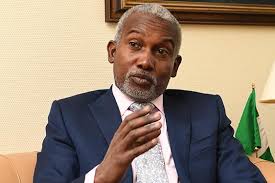Nigeria’s Minister of Foreign Affairs, Ambassador Yusuf Maitama Tuggar, has made a bold diplomatic offer to the United States—access to Nigeria’s critical and rare earth minerals in exchange for easing visa restrictions placed on government officials across West Africa. The offer was made during the 54th Ordinary Session of the Economic Community of West African States (ECOWAS) Mediation and Security Council held at ministerial level in Abuja.
Ambassador Tuggar, who also chairs the ECOWAS Mediation and Security Council, raised concerns about recent reports indicating the United States might be extending visa restrictions across all ECOWAS member states. He described the visa ban as a serious threat to trade, diplomacy, and regional development, labelling it a “non-tariff barrier” that could damage cooperation between West Africa and the U.S.
Tuggar used the opportunity to highlight West Africa’s economic potential, particularly in the extractive sector. “We possess critical minerals and even rare earths such as Samarium from the Monazite found in my home State of Bauchi,” he told participants. He said the region is full of opportunities and ready to negotiate mutually beneficial deals with international partners, including the United States.
He added that for such deals to happen, there must be mobility, mutual respect, and open access. “ECOWAS countries and the US have a rare opportunity to create a partnership based on principles of need. We are also a strategic alternative to more distant and politically divergent energy producers,” Tuggar explained.
The minister noted that ECOWAS nations have long been part of global trade, even before the formation of modern states. “We in this part of the world are students of the Art of the Deal and have been part of the international trading system even before the modern state system,” he said, borrowing a phrase famously associated with former U.S. President Donald Trump.
He questioned the rationale of the U.S. travel policy, asking, “Who takes up the opportunities in our region by allowing government officials and technocrats, business executives and entrepreneurs to travel freely back and forth to close the deals?” Tuggar stressed that denying officials and key players travel access could limit opportunities for growth and strategic partnership.
His statement followed recent revelations from a leaked memo signed by U.S. Secretary of State Marco Rubio, which proposed widespread travel restrictions on Nigeria and 35 other countries. The memo cited reasons such as unreliable identity verification, lack of cooperation with U.S. immigration enforcement, and weak civil documentation systems.
Countries listed for possible restriction include Nigeria, Ghana, Cameroon, Gambia, Senegal, Niger, Ethiopia, Uganda, Zambia, Zimbabwe, and several island nations. The directive reportedly gives these countries a 60-day deadline to submit action plans addressing U.S. concerns or risk immediate visa limitations or entry bans.
The Trump administration argues that these measures are vital to national security, citing risks from terrorism, fraudulent identity documents, and uncontrolled immigration. In his earlier comments, Trump defended the executive order by saying, “We cannot allow open migration from any country where we cannot safely and reliably vet and screen those seeking to enter the United States.”
Nigeria and several other African nations have criticised the approach, calling it discriminatory and damaging to international relations. Tuggar’s offer of a minerals-for-access deal is seen as a strategic effort to find middle ground and preserve diplomatic ties.
Tuggar’s remarks also signalled a shift in Nigeria’s foreign policy posture, with the country looking to extract value from its natural resources not just through trade but as a lever in international diplomacy. He called on the U.S. to recognise ECOWAS not only as a security partner but also as a credible economic bloc capable of providing alternatives to global energy markets.
In response to the growing tensions, some observers suggest that both sides need to find practical solutions that balance security concerns with mutual economic benefits. Analysts believe Nigeria’s strategic offer could create space for negotiation, especially at a time when the global demand for rare earth minerals is rising due to technological and green energy needs.
